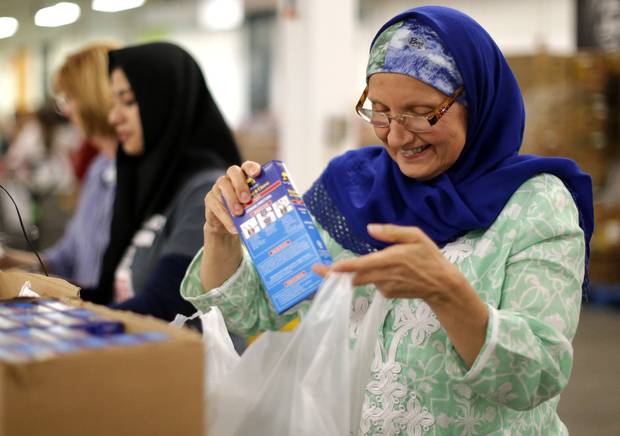Recently, a public policy research group called the CATO Institute published a report on how Muslim Americans, comprised mostly of immigrants and their children, are liberalizing their views on a variety of political and social topics once they arrive in the U.S. The article, which draws its data from a Pew survey, surmises that either emigrating Muslims started out more liberal than most of the people from their country of origin, or that the U.S. is unique in its ability to assimilate Muslims into the social fabric of American culture.
Now, I am not a social scientist, but based upon my interactions with all kinds of people from all over the world coupled with my 40 plus years as an American (Catholic) Christian and now an American Muslim, I have to say it’s much more complicated than either of these two reductive theories.
To start with, the assumptions that underpin these theories are faulty. Muslims are spoken about as a monolith, when, in fact, our levels of education, economic status, and religious beliefs and practice span from one end of the spectrum to the other. If you want to make any sort of meaningful analysis that will then guide effective public policies, you simply cannot lump roughly two billion people together! As an example, Muslim women come in many levels of practice–some wear a head scarf while some do not; some go to mosque regularly while some do not; and, some send their children to Islamic schools but some do not. This sort of spectrum of practice can be found in any faith.
Along with presuming Muslims across the globe form one, easily understood, homogeneous group, the writers of this paper also make the mistake of predicating their theories on the idea that American values are not aligned with Muslim values. The possibility that Muslims who immigrate to the U.S. assimilate quickly and easily into American culture because the religious values they bring with them match Christian or Jewish values is never considered. Even at a cursory glance, it is clear that the tenets upon which Christianity and Judaism rest are incredibly similar to the those of Islam—charity, social responsibility, kindness and honesty, to name a few. Now if the comparison is between Muslim values and American values, I would argue this is an unequal and specious comparison. After all, how can you examine a country’s views on a variety of issues against a religion’s views? And this then begs the questions, what are American values? Are we not a pluralistic society with as many viewpoints as we have faiths?
Finally, the paper theorizes that once Muslim settle in the U.S., they liberalize their views because either they had progressive leanings even before they arrived here or because—and this one is more than a touch self-congratulatory—America is unique in its ability to absorb this group of immigrants. Well, what about the fact that American Muslims, both those who immigrate here and those who are born here, are among the most highly educated Muslims in the world, and even among the most educated Americans in America? Studies have shown time and again (see Who Speaks for Islam? What a Billion Muslims Really Think, John Esposito & Dalia Mogahed (2008)) that the more educated a person, the more likely he is to have been exposed to a variety of people and philosophies and the more likely he is to hold progressive viewpoints. This is not unique to Muslims. Any person of any faith, ethnicity or country will evolve into a more well-rounded, open-minded individual when he acquires an education, yet, the paper fails to incorporate the education level of American Muslims into its analysis.
So, there are many other factors at play that can speak to the results cited in the CATO Institute article, but rather than exploring the nuances of why Muslim Americans shift to more liberal viewpoints once they immigrate to this country, the paper offered oversimplified analysis that rests on faulty assumptions. It failed to critically examine culture, economic status and level of education as the reasons behind any differences we might find between Muslims and Westerners and instead pitted Islam against American values, perpetuating the idea that Islam and Muslims are antithetical to “western values,” Christianity, and civilized thinking. As an American woman who was once a Christian and is now a Muslim, I can tell you this is simply not so.
Trisha Squires is a business strategist who specializes in strategic transformation for service companies and providers, and empowering entrepreneurs to grow their companies sustainably on a fast track. She resides in Chicago.
(Photo Credit: CAIR Oklahoma)
















